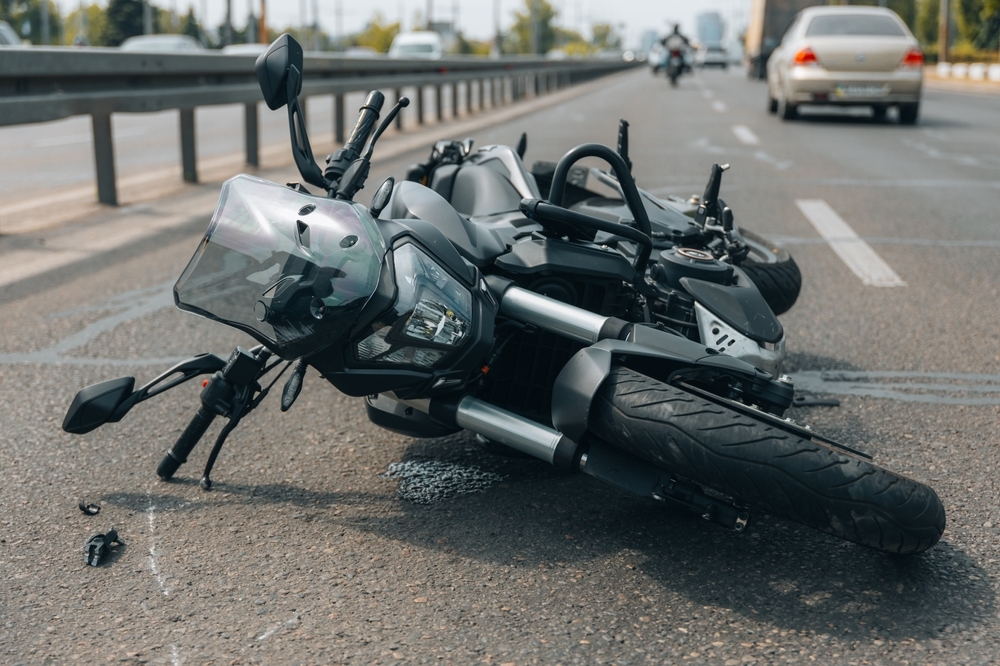
Riding a motorcycle offers a sense of freedom that cars simply can’t match—but that freedom comes with risks. When a motorcycle accident occurs, New Jersey motorcyclists often face severe injuries, expensive medical bills, and challenges securing fair compensation. What you do immediately after a crash can significantly impact both your health and your financial future.
At Corradino & Papa, we understand the legal and financial struggles riders face after a crash. Our New Jersey motorcycle accident lawyers have helped injured riders protect their rights, deal with insurance companies, and fight for maximum compensation. By avoiding these common mistakes, you can strengthen your case and improve your chances of a successful claim.
Before you speak to the insurance company or accept a settlement, make sure you’re not making one of these seven critical mistakes that could weaken your motorcycle accident claim.
1. Delaying Medical Attention
After a motorcycle accident, adrenaline can mask pain, making injuries seem minor when they might be serious. Some injuries, such as concussions, internal bleeding, or spinal trauma, may not show symptoms immediately. Insurance companies often argue that delayed medical treatment means the injuries weren’t serious or weren’t caused by the crash.
What to Do Instead:
- Seek medical attention immediately, even if you feel fine.
- Follow all prescribed treatments and attend follow-up visits.
- Document your injuries, including photos, doctor’s notes, and medical records.
2. Admitting Fault at the Scene
In the shock and confusion after a crash, you may instinctively apologize—but even a casual 'I’m sorry' could be taken as an admission of fault during liability assessments. New Jersey determines fault through official investigations, considering factors like road conditions, driver actions, and traffic laws.
What to Do Instead:
- Stick to the facts when speaking to police or other parties.
- Avoid making statements that could imply responsibility.
- Allow the official investigation to establish liability based on evidence.
3. Failing to Document the Accident Scene
Motorcycle accident claims depend on strong evidence. If you don’t document the scene, proving what happened can be difficult.
What to Do Instead:
- Take clear photos of your motorcycle, the crash site, skid marks, road conditions, and traffic signals.
- Photograph your injuries immediately and in the following days.
- Collect contact information from witnesses who saw the accident.
- Obtain a copy of the police report as soon as it’s available.
4. Misunderstanding Insurance Coverage
Unlike standard vehicles, motorcycles in New Jersey do not have Personal Injury Protection (PIP) coverage. This means injured riders must seek compensation through the at-fault driver’s insurance or their own MedPay coverage, if available.
Many drivers in New Jersey either have no insurance or carry only minimal coverage, leaving injured motorcyclists vulnerable. Uninsured/Underinsured Motorist (UM/UIM) coverage can help protect riders in these situations by covering medical expenses and lost wages when the at-fault driver’s policy falls short.
What to Do Instead:
- MedPay or UM/UIM coverage can help cover medical expenses if the at-fault driver’s insurance is insufficient, up to your policy limits.
- If you’re unsure about your coverage, review your policy and speak with your insurance provider.
- Consider adding UM/UIM coverage to your motorcycle policy for added financial protection.
5. Missing New Jersey’s Filing Deadlines
New Jersey law sets a strict two-year statute of limitations for personal injury claims. Missing this deadline can result in losing your right to compensation. Additionally, if the accident involved a government entity (e.g., poor road maintenance contributed to the crash), special deadlines and procedures apply.
What to Do Instead:
- Consult a motorcycle accident lawyer promptly to ensure all deadlines are met.
- File your insurance claim as soon as possible and ensure all paperwork is completed correctly.
- Be aware of special rules for claims involving government entities.
6. Speaking to Insurance Adjusters Without Legal Counsel
Insurance companies prioritize their bottom line, not your recovery. Adjusters may try to minimize payouts by twisting statements to argue that you were at fault or that your injuries are minor.
What to Do Instead:
- Avoid giving recorded statements without consulting a lawyer.
- Let your attorney handle negotiations with the insurance company.
- Never accept a settlement without first reviewing it with a lawyer.
7. Not Hiring a Motorcycle Accident Lawyer
Motorcycle accident claims are often more complex than standard car accident cases due to biases against riders, unique insurance laws, and the severity of injuries. Without legal representation, you risk undervaluing your claim or making mistakes that hurt your case.
Similar Post: The Hidden Challenges of Motorcycle Accident Claims: How Bias and Misconceptions Can Affect Your Compensation
What to Do Instead:
- Hire a personal injury lawyer with experience handling motorcycle accident cases.
- Allow your lawyer to handle evidence gathering, legal filings, and negotiations.
- Ensure they are familiar with New Jersey’s motorcycle accident laws and have experience dealing with insurance companies.
Hypothetical Scenario: Why Legal Guidance Matters
Imagine a motorcyclist in Newark is sideswiped by a distracted driver at an intersection. At the scene, they feel fine and decline medical treatment, assuming their injuries are minor. Weeks later, they develop severe back pain, but the insurance company disputes the claim, arguing that the injury wasn’t caused by the crash.
With the help of a motorcycle accident lawyer, the rider could have gathered medical records, secured witness statements, and built a compelling case against the insurance company. Instead of settling for a lowball offer, they might have recovered full compensation for medical bills, lost wages, and pain and suffering.
Protecting Your Motorcycle Accident Claim: A Quick Checklist
- Seek immediate medical attention and document your injuries.
- Avoid admitting fault or apologizing at the scene.
- Take detailed photos and gather witness information.
- File your claim within New Jersey’s statute of limitations.
- Do not speak to insurance adjusters without legal representation.
- Consult a lawyer before accepting any settlement offer.
- Hire a personal injury attorney to maximize your compensation.
Similar Post: Top 10 Mistakes to Avoid When Pursuing a Personal Injury Case in New Jersey
Staying Safe on New Jersey Roads
While accidents aren’t always preventable, following these safety tips can help reduce your risk:
- Wear a DOT-approved helmet and protective gear.
- Stay visible by wearing bright clothing and using reflective materials.
- Obey traffic laws and never assume drivers see you.
- Avoid riding in bad weather whenever possible.
- Perform regular maintenance on your motorcycle.
- Practice defensive riding by anticipating other drivers’ actions and maintaining a safe following distance.
Injured in a Motorcycle Accident? Corradino & Papa in New Jersey is Here to Help
A motorcycle accident in New Jersey can turn your life upside down—but you don’t have to face the legal process alone. At Corradino & Papa, we are committed to fighting for injured motorcyclists across New Jersey. Our team works tirelessly to help clients pursue full compensation for medical expenses, lost wages, and pain and suffering.
Why Choose Corradino & Papa for Your Motorcycle Accident Claim?
- Decades of Experience: Representing motorcycle accident victims across Newark, Irvington, Harrison, East Orange, Orange, Belleville, Hillside, Maplewood, and surrounding areas.
- No Upfront Costs: You don’t pay unless we win your case.
- Personalized Legal Representation: We understand the challenges riders face and fight against insurance company tactics.
- Proven Results: We have recovered millions for injured clients.
Call us today at 973-381-1706 or fill out our online contact form for a free, no-obligation consultation. Let us help you get back on the road to recovery.
Disclaimer: This blog is intended for informational purposes only and does not establish an attorney-client relationship. It should not be considered as legal advice. For personalized legal assistance, please consult our team directly.

